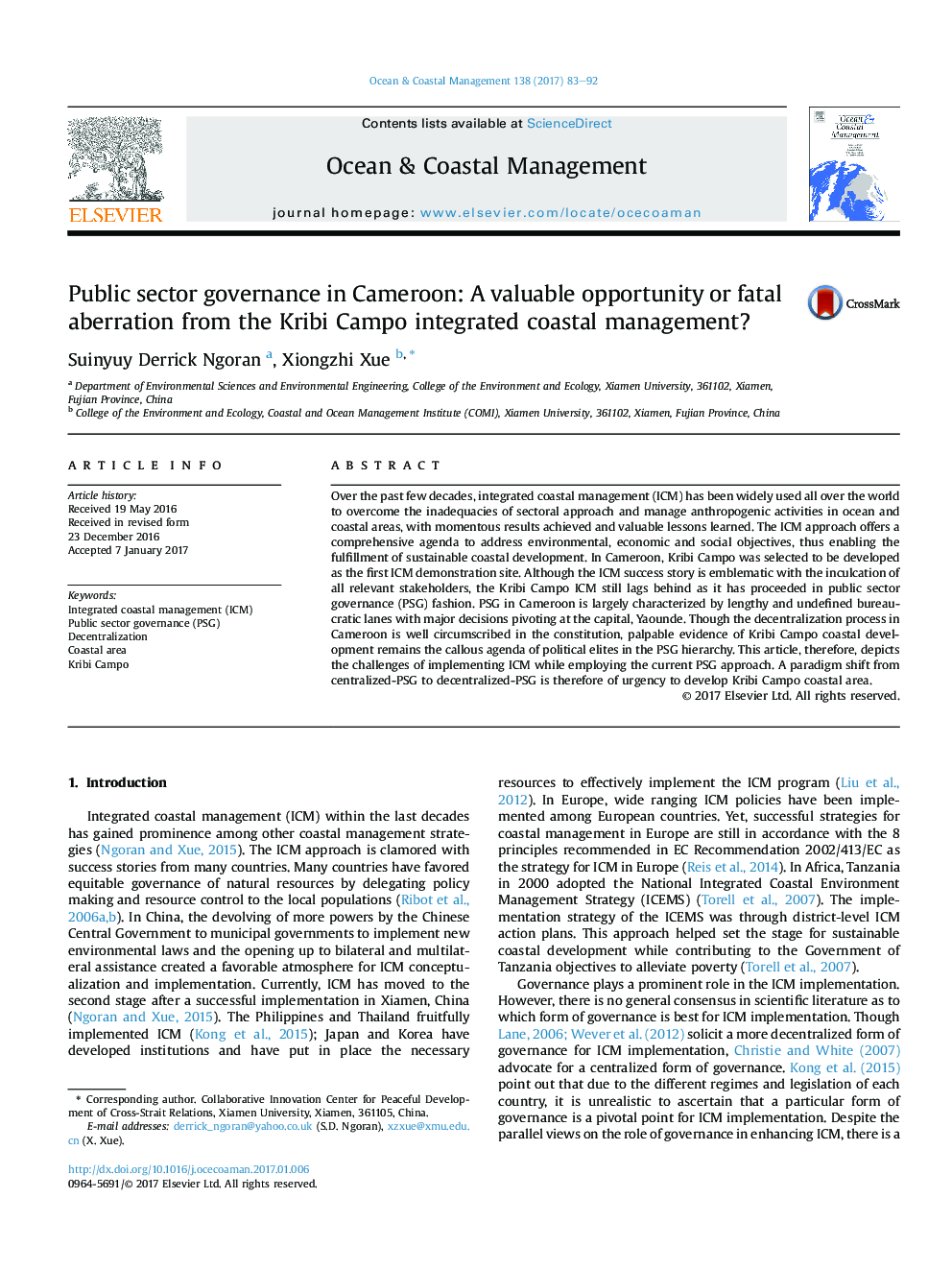| Article ID | Journal | Published Year | Pages | File Type |
|---|---|---|---|---|
| 5473976 | Ocean & Coastal Management | 2017 | 10 Pages |
Abstract
Over the past few decades, integrated coastal management (ICM) has been widely used all over the world to overcome the inadequacies of sectoral approach and manage anthropogenic activities in ocean and coastal areas, with momentous results achieved and valuable lessons learned. The ICM approach offers a comprehensive agenda to address environmental, economic and social objectives, thus enabling the fulfillment of sustainable coastal development. In Cameroon, Kribi Campo was selected to be developed as the first ICM demonstration site. Although the ICM success story is emblematic with the inculcation of all relevant stakeholders, the Kribi Campo ICM still lags behind as it has proceeded in public sector governance (PSG) fashion. PSG in Cameroon is largely characterized by lengthy and undefined bureaucratic lanes with major decisions pivoting at the capital, Yaounde. Though the decentralization process in Cameroon is well circumscribed in the constitution, palpable evidence of Kribi Campo coastal development remains the callous agenda of political elites in the PSG hierarchy. This article, therefore, depicts the challenges of implementing ICM while employing the current PSG approach. A paradigm shift from centralized-PSG to decentralized-PSG is therefore of urgency to develop Kribi Campo coastal area.
Related Topics
Physical Sciences and Engineering
Earth and Planetary Sciences
Oceanography
Authors
Suinyuy Derrick Ngoran, Xiongzhi Xue,
